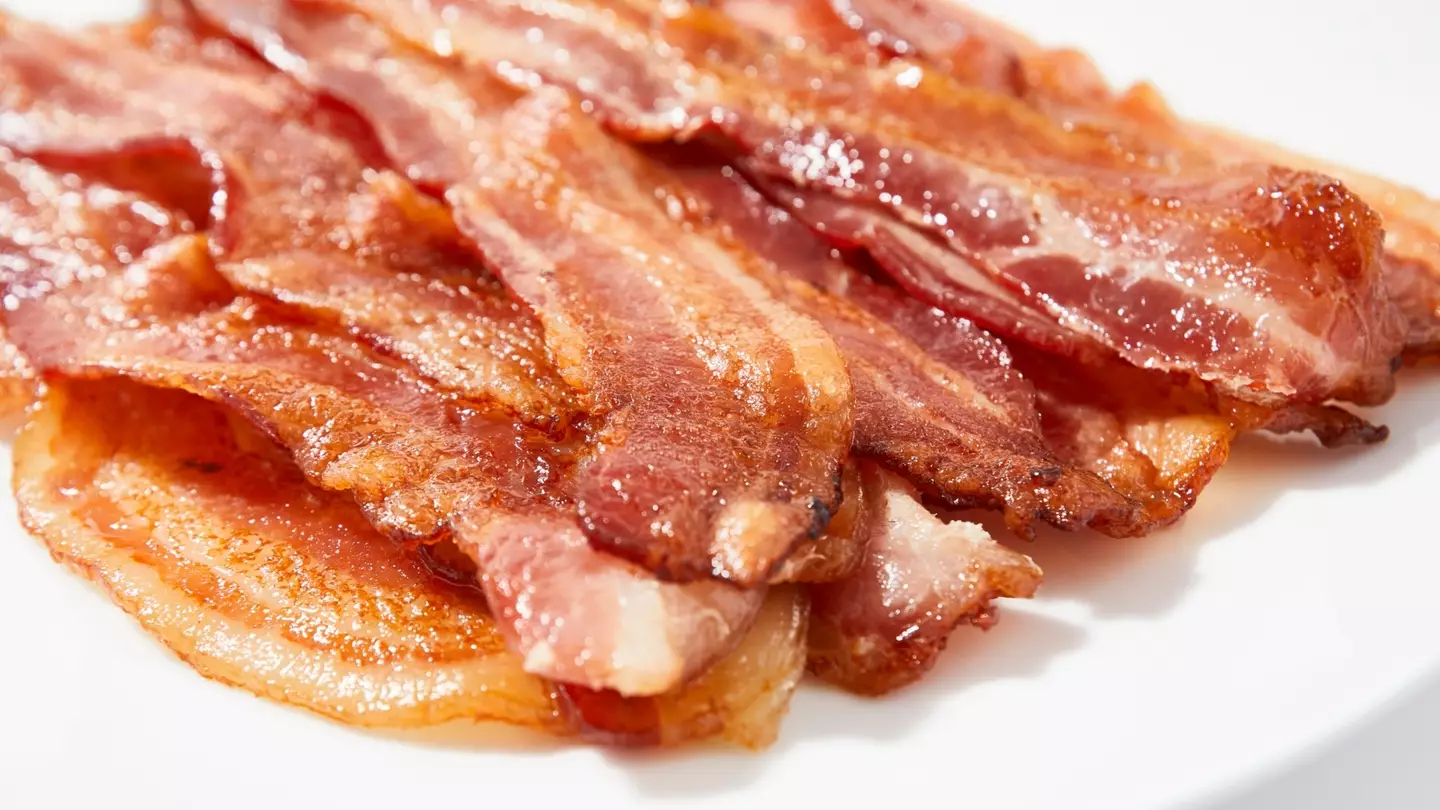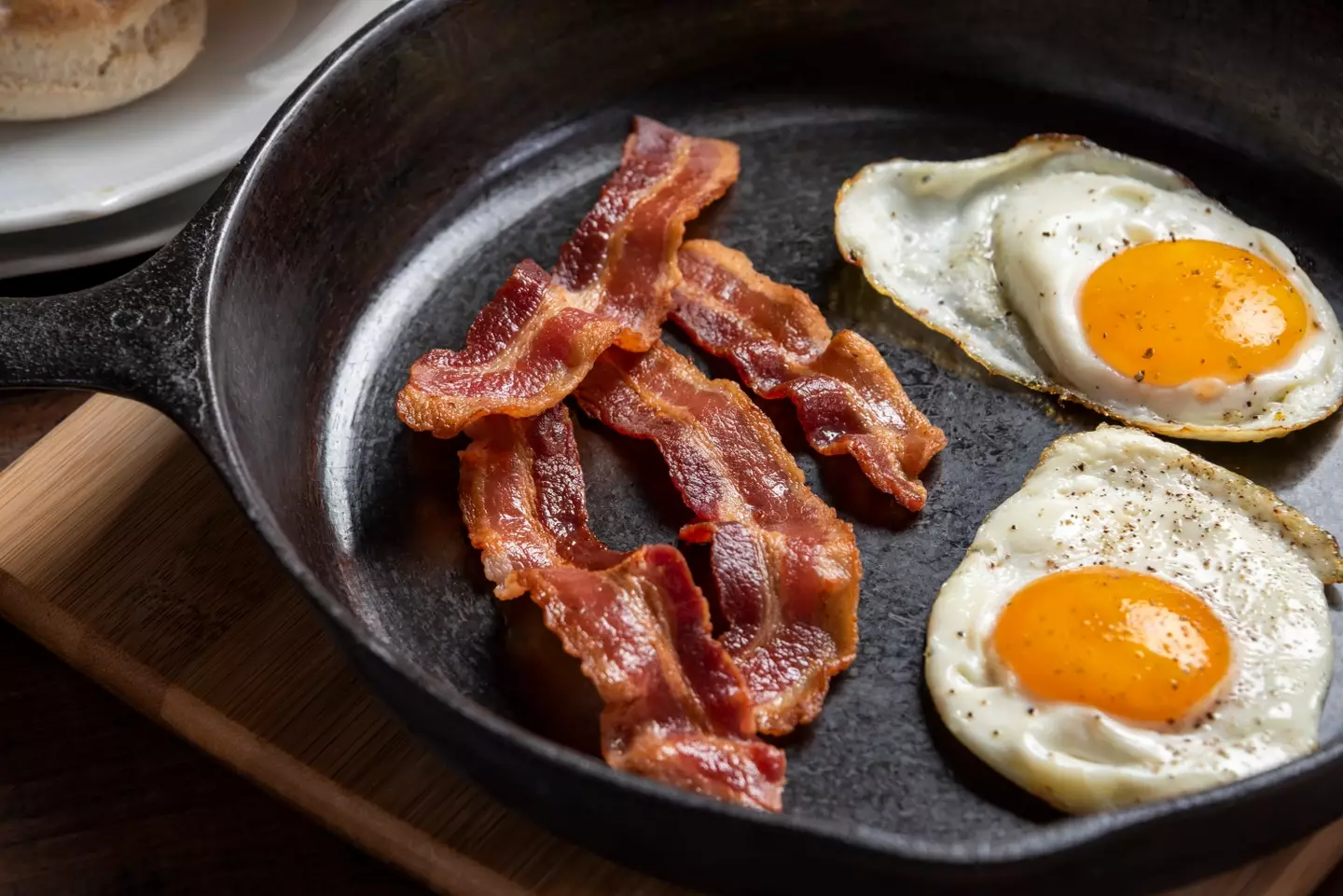
Warning: This article contains discussion of cancer which some readers may find distressing.
Scientists have called for a ban on most kinds of bacon you can buy in the supermarket after a chemical contained within the meat was linked to thousands of bowel cancer cases.
Bowel cancer is one of the most dangerous kinds of cancer in the UK, with Cancer Research UK estimating there are around 16,800 deaths from it in the UK each year.
They also estimated that 13 out of 100 bowel cancer cases came from eating processed meats, food containing artificial ingredients and preservatives which are typically there so it can stay longer on the supermarket shelf.
Advert
Bacon is one such example of a processed meat, with most packs of rashers containing these ingredients which have been linked to cancer cases.
Scientists from the Coalition against Nitrates have called on the government to phase them out of our food and to put clearer warnings on packaging.

They warn that between 90 and 95 percent of bacon and ham contains the ingredients.
Food safety professor Dennis Corpet said: "Most people don’t realise that the WHO classifies nitrite-cured meats like bacon and ham in the same carcinogenic category as tobacco and asbestos."
You can spot the signs on the packaging if you take a close look at the bacon you're buying, but for these checks to work you need to know what you're looking for.
If you look on the ingredients section of your food, usually written in very small text, try to spot if it says your food contains any of E249 (potassium nitrite), E250 (sodium nitrite), E251 (sodium nitrate), and E252 (potassium nitrate).
So that's nitrates and nitrites you should be on the lookout for.

Should you find something which says the bacon is 'uncured' or is 'nitrate free', then that's a good sign, though if the packaging says there are 'no added nitrates/nitrites', that means they might have used ones from plant extracts.
If you can get your bacon fresh, then you can also avoid this, but since the vast majority of the stuff on the shelves in the supermarket is cured, then you're back to dangerous bacon.
Now you know what to look out for, though be mindful that bacon is not a particularly healthy breakfast option anyway, especially fried.
On the other hand, it tastes f**king delicious, so if you can find some which is really nice and not as nitrate-y, then you can enjoy it as part of a balanced diet.
While a team of scientists say they've found a link between nitrates, nitrites and cancer, a Department of Health and Social Care spokesperson said: “The Food Standards Agency have made clear that the link between nitrates and nitrites and cancer remains inconclusive.”
Topics: Bowel cancer, Cancer, Food And Drink, Health, Shopping